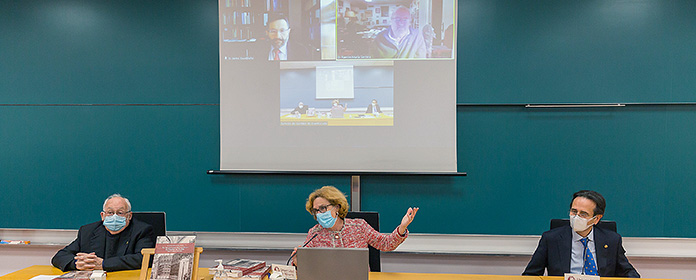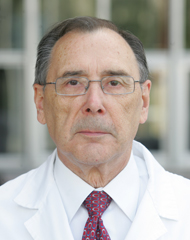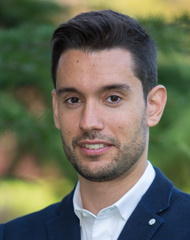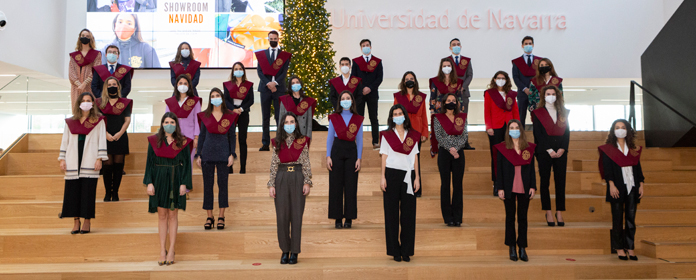Ingenieros de salud: del chip terapéutico a la cirugía de máxima precisión
La Universidad de Navarra estrena su Máster en Ingeniería Biomédica con el apoyo de la Universidad de California
En una iniciativa conjunta de sus campus de Pamplona y San Sebastián, la Universidad de Navarra estrena el próximo curso 2007-08 su nuevo Máster en Ingeniería Biomédica. Se trata de un programa dirigido por la Escuela Superior de Ingenieros en colaboración con otros centros de la misma universidad: facultades de Medicina, Ciencias y Farmacia, Clínica Universitaria de Navarra, Centro de Investigación Médica Aplicada (CIMA) yCentro de Estudios e Investigaciones Técnicas de Gipuzkoa (CEIT).
En la puesta a punto y ejecución del proyecto colabora el departamento de Bioingeniería de la Universidad de California en Berkeley. Además, empresas nacionales e internacionales del sector de tecnologías biomédicas participarán en la docencia y ofrecerán prácticas.
El Dr. Carlos Ortiz de Solórzano, ingeniero y director del máster, explica algunas aplicaciones de la ingeniería biomédica: "Las técnicas de ingeniería de tejidos basadas en células madre adultas ya acortan procesos de regeneración de tejido óseo o conjuntivo tras la cirugía. También mejoran las expectativas de recuperación en dolencias coronarias.
Otro campo se refiere a las técnicas de adquisición y análisis de imagen, que contribuyen de manera decisiva al diagnóstico y seguimiento de enfermedades complejas como el Parkinson y el Alzheimer. En el caso de la cirugía asistida, aporta más precisión a las intervenciones quirúrgicas. Además, las nanotecnologías permiten implantar dispositivos (chips) en el cuerpo humano para reemplazar las funciones perdidas por órganos o tejidos".
El director del máster trabajó 8 años en Berkeley antes de incorporarse a la Escuela Superior de Ingenieros y al CIMA de la Universidad de Navarra. Tras su regreso a España, Carlos Ortiz de Solórzano subraya las condiciones de "este entorno científico con vocación integradora del conocimiento. Como investigamos para curar, queremos aplicar los avances en áreas aparentemente tan dispares como la ingeniería de materiales, la mecánica o la electrónica, que ofrecen alternativas innovadoras y efectivas a los métodos tradicionales de diagnóstico y tratamiento de enfermedades".
Para la presentación del nuevo máster, viajó hasta Pamplona la Dra. Tejal Desai, directora del Laboratorio de Micro y Nanotecnologías Terapéuticas de la Universidad de California en San Francisco. Su equipo trabaja en el diseño de cápsulas con células pancreáticas, invisibles al sistema inmune, que se podrán insertar en el páncreas de pacientes diabéticos para producir insulina. Según afirma la investigadora, "en 10 ó 15 años esta técnica podrá estar disponible para los diabéticos de tipo 1, los que deben administrarse insulina. Este avance les permitiría mejorar su calidad de vida y regenerar una parte o la totalidad de su páncreas".
Otro ejemplo innovador de la investigación que desarrolla el equipo de la Dra. Tejal consiste en la fabricación de moldes que permiten un crecimiento apropiado de células óseas en superficies o andamiajes artificiales implantables quirúrgicamente en fracturas o zonas óseas descalcificadas. "Este proceso podría aplicarse además a los tejidos blandos que tienden a formar fibrosis. La idea consiste en implantar un gel con factores regeneradores celulares para que ayuden a recuperar el tejido dañado", aclara la especialista.
La Dra. Elena de Juan, ingeniera y también directora del máster, se ha incorporado a la Universidad de Navarra tras su paso por el Instituto Max-Planck en Munich (Alemania) y ahora realiza una investigación en Berkeley. Explica que, aunque abierto a un público amplio de licenciados universitarios, el máster se orienta especialmente a los ajenos al ámbito biomédico, como ingenieros, informáticos, físicos o matemáticos. El plantel docente ronda el centenar de profesionales de todas las áreas implicadas: médicos, biólogos, físicos, químicos, ingenieros, farmacéuticos, bioquímicos, etc. Todos trabajan y desarrollan su investigación básica y aplicada en ámbitos de conocimiento relacionados con la medicina.





